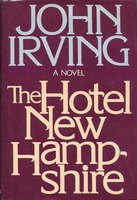This is a quote from a memoir by Dorothy Wordsworth, reflecting on a trip she took with two famous poets, her brother, William Wordsworth, and their similarly gifted companion, Samuel Taylor Coleridge. We sat upon a bench, placed for the sake of one of these views, whence we looked down upon the waterfall, and over the open country ... A lady and gentleman, more expeditious tourists than ourselves, came to the spot; they left us at the seat, and we found them again at another station above the Falls. Coleridge, who is always good-natured enough to enter into conversation with anybody whom he meets in his way, began to talk with the gentleman, who observed that it was a majestic waterfall. Coleridge was delighted with the accuracy of the epithet, particularly as he had been settling in his own mind the precise meaning of the words grand, majestic, sublime, etc., and had discussed the subject with William at some length the day before. “Yes, sir,” says Coleridge, “it is a maj...

This comment has been removed by a blog administrator.
ReplyDeleteUpdike is the only one of the three who, along with Philip Roth, was considered Nobel Prize material and whose novels are likely to enter the canon. I’ve read none of the three you name, but I’ve read most of Roth’s and suspect that several are better than the three you name.
ReplyDeleteI was considering only novels. Perhaps some of Wolfe’s non-fiction, especially The Right Stuff (which I haven’t read) will enter the canon.
DeleteI was a little surprised at myself, for thinking of Updike's MEMORIES before ROGER'S VERSION (1986), which would also have fit into the period I was asked about. On reflection, I think ROGER's VERSION is more appropriate for those of us who are willing to have ideas debated within a novel, but recognizable characters rather than allegorical cut-outs. Many readers get impatient with that sort of thing quickly (some even skip past the Ivan-versus Alyosha debate in KARAMAZOV). And I must have been thinking of them when I reacted as I did, with MEMORIES, which requires much less by way of readerly patience.
DeleteAs for Roth, I've read three of his novels. One of them, PORTNOY, comes (no pun intended, though given the gist of the book it could have been ) too early for the period under discussion. The other two, AMERICAN PASTORAL and THE HUMAN STAIN are very fine. But I do get the sense from Roth's admirers that I must yet be missing out on his best.
"although by recognizable characters..." etc. is what I meant.
ReplyDelete